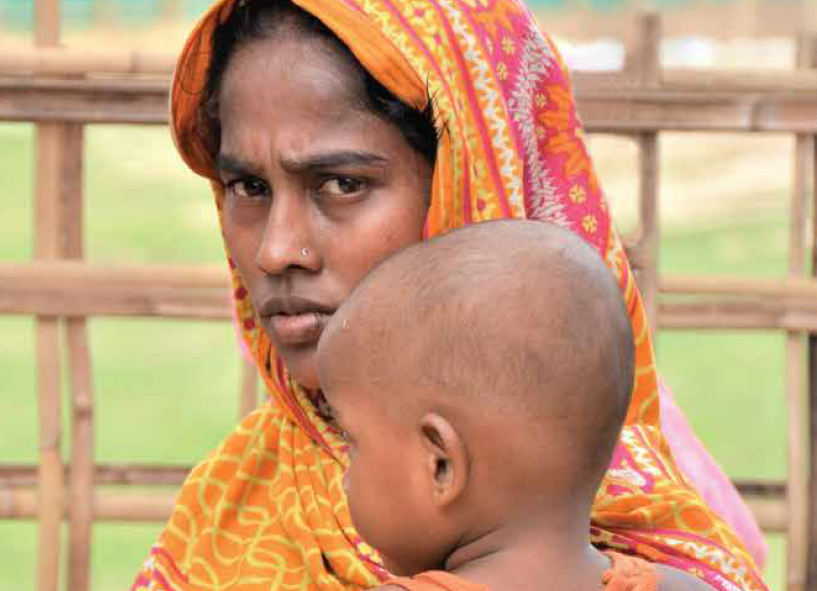Research on SRH of Rohingya Adolescents & Youth
Research on SRH of Rohingya Adolescents & Youth
Previously, very little was known about the health, education, marriage patterns, maternal and sexual and reproductive health knowledge of the Rohingyas due to their history of exclusion in Myanmar. This research report was conducted by Population Council with support from UNFPA to provide basic demographic information as part of a needs assessment of maternal and child health among women and girls living in camps. The sample included 48 married and unmarried Rohingya adolescent girls and boys aged between 14-24 years, 48 community and religious leaders, 20 adult Rohingya women, 24 program managers and service providers working with Rohingya populations in Bangladesh, and 53 adolescents and young people from the host community.
The key findings of this report are as follows:
- Child marriage is practised among the Rohingya
- Arranged marriages and dowry exchange are the norms among the Rohingya
- Large family size is preferred and use of contraception is limited among the Rohingya
- Home delivery used to be the widespread practice among the Rohingya in Myanmar and is still in practice in the camps
- Reproductive health services are often available but inaccessible for the Rohingya adolescents and youth in the camps
- Despite issues, the Rohingya consider living in camps safer than living in Myanmar
- The host community perceives the Rohingya as both social and economic threats
This study focuses specifically on displaced Rohingya adolescents and youth (ages 14-24) and explores how the crisis has impacted their sexual and reproductive health (SRH), marriage practices, safety and security, and related attitudes and aspirations. It also shows us the practices and beliefs of the Rohingyas relating to marriage, contraceptives and safe abortion.
The following accounts give us a first-hand insight into the lives of the Rohingyas. The real names have not been disclosed.
“Girls are considered eligible for marriage after menarche. Boys are considered eligible when they are mature enough to understand marital life.” (Adult Rohingya woman, FGD participant)
“During weddings in our society, the brides’ families had to pay the grooms’ a lot of dowry, as much as they could afford. The grooms were given cash money, dresses, furniture, cows, properties, etc.” (IDI 22, Unmarried girl, age 14)
“Here (in camp) marriages can be performed easily. There is no restriction on age for marriages. Marriages can be performed at an early age…There is no rule of law relating to marriage in camp. People can marry as they wish… No registration is required here (in the camp) as it was in Myanmar.” (Adult Rohingya woman, FGD participant)
“The number of girls is more compared to that of boys here. Because the men are going abroad for work, but the girls have been left at home.” (IDI 8, Married woman, age 22)
“The Rohingya feel that more children bring prosperity and happiness in the family because they are the gift of Allah. Humans cannot create children by themselves. So they should conceive when it comes normally… the Huzurs (Muslim religious leaders) tell us not to use a contraceptive method. Contraception is a sin.” (IDI 2, Married Woman, Age 21)
“We are afraid that menstrual cycles will become irregular, or women might get infections in the uterus for adopting birth control methods.” (IDI 20, Unmarried girl, age 17)
Download report: Rohinga Adolescent and Youth SRH

